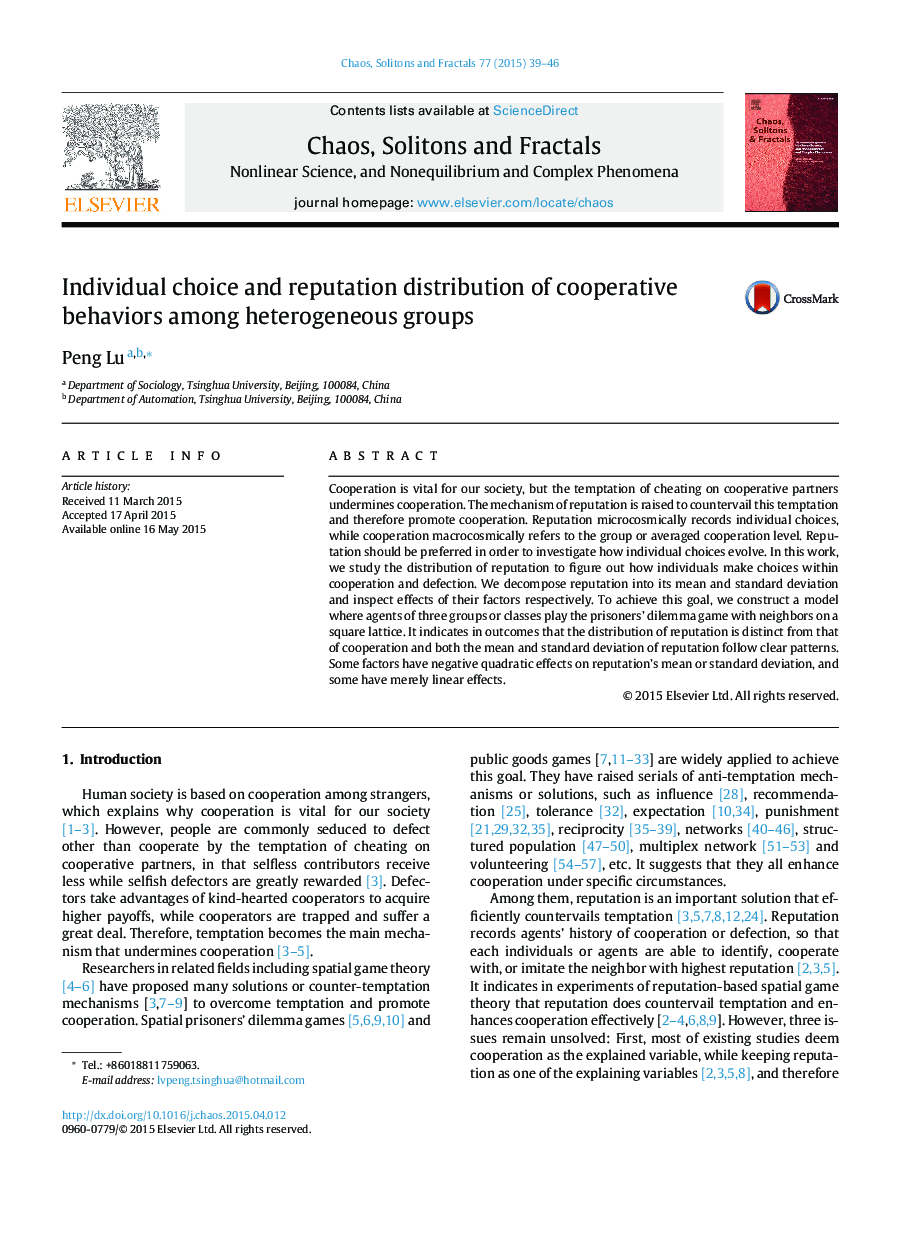| Article ID | Journal | Published Year | Pages | File Type |
|---|---|---|---|---|
| 8254832 | Chaos, Solitons & Fractals | 2015 | 8 Pages |
Abstract
Cooperation is vital for our society, but the temptation of cheating on cooperative partners undermines cooperation. The mechanism of reputation is raised to countervail this temptation and therefore promote cooperation. Reputation microcosmically records individual choices, while cooperation macrocosmically refers to the group or averaged cooperation level. Reputation should be preferred in order to investigate how individual choices evolve. In this work, we study the distribution of reputation to figure out how individuals make choices within cooperation and defection. We decompose reputation into its mean and standard deviation and inspect effects of their factors respectively. To achieve this goal, we construct a model where agents of three groups or classes play the prisoners' dilemma game with neighbors on a square lattice. It indicates in outcomes that the distribution of reputation is distinct from that of cooperation and both the mean and standard deviation of reputation follow clear patterns. Some factors have negative quadratic effects on reputation's mean or standard deviation, and some have merely linear effects.
Related Topics
Physical Sciences and Engineering
Physics and Astronomy
Statistical and Nonlinear Physics
Authors
Peng Lu,
